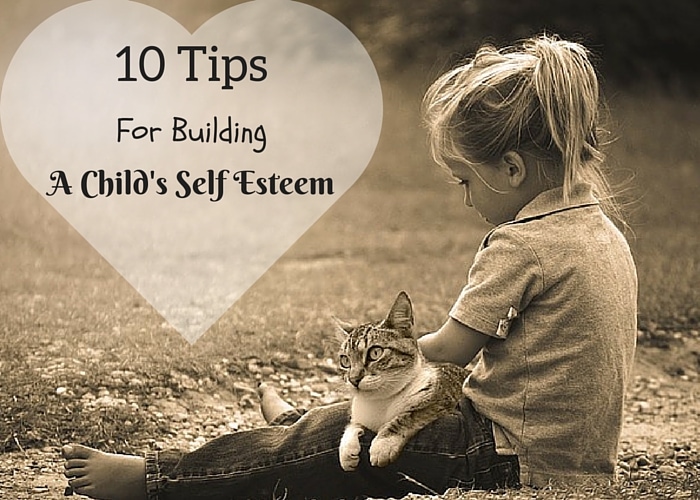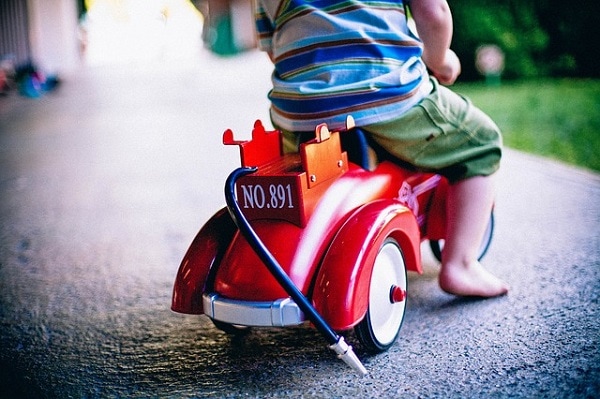10 Tips For Building Self Esteem in Children
People often say that we all spend the entirety of our last 50 years recovering form our first 18. Indeed, we are highly influenced by our childhood experiences, particularly in our levels of self-esteem and confidence.

While it is possible to increase such qualities as you’re older, it’s a lot easier to increase them at a younger age — after all, it is much easier to avoid damage than to repair it.
Here are some steps you may take in order to make sure your children get a nice head start:
1. Show them you love them at all times. Let them know they’re adequate exactly the way they are. Parents will often unconsciously withhold their love when their child performs poorly or fails to obey them, and that’s a terrible thing to do — a child must know that you will fully support them, no matter what.
2. Give them control. It’s important that you allow your child to make decisions about their lives — for instance, let them choose what clothes they’ll wear or what they’ll eat from a few options you give them. This way, they will feel much more comfortable making choices later on.
3. Help them set goals and be succesful. Whether they want to make it to the tennis team or grow a pumpkin, help them on what they want to achieve. This will show your child that it is possible to change their life when they know what they want and work hard to achieve it.
* It’s also very important that you manage to help your child deal with disappointment, so they can understand that, at times, things won’t go according to plan.
4. Teach them new things. The more capable your child is, the mor self-esteem and confidence they’ll have. By teaching your child new skills often, they’ll feel much more prepared to deal with the challenges of everyday life.
* For younger children, teach them to tell the time, tie their shoes and make sandwiches, for instance. Older children can be taught how to properly study for their finals, prepare a class presentation, or change the car’s oil.
5. Frequently praise and compliment your child. Everyone stands a little bit taller when they hear something great about themselves. Whenever your child does a good job, address it — and freely give them praise.
6. Give them some chores. Think of some age-appropriate work they can do around the house, and let them be responsible for it. This will help them learn how to maintain discipline and self-soothing.
7. Do not shame your children. Nothing good comes out of making people feel bad about their performance or who they are — especially children. By doing so, you will only create an enemy in them. Instead of suggesting there’s something wrong with them, teach them that a particular behavior of theirs is incorrect.
8. Include them when you address important family issues. Listen to their opinions. You may find that, at times, the little one can even come up with a great solution. Even if they don’t, this will make your child feel important, and therefore, become more confident.
9. Set a great example for them. Take care of your needs, and be patient and kind to yourself. Treat yourself nicely so your children can learn to do the same. Remember to set limits and say “no” when they ask for unreasonable things. While children may not listen sometimes, they always watch, so you have to show them what self-esteem and confidence look like.
10. Give them attention. Never ignore your child — if you do so, you’ll be practically telling them they are not important. Put down your magazine and set the TV to mute when they talk to you. Make some time to pray with them. If you can’t give them attention at the moment, make sure that they understand the situation.
* Don’t be stingy with your children — encourage them. Children need lots of encouragement and support to feel good about themselves.
The majority of behavioral issues children face are closely related to poor self-confidence or a lack of a positive self-image. Give your children the self-esteem and confidence that they need in order to be successful and happy, and it’ll likely be the best gift you ever got them. It’s never too early to make sure your child gets ready for the real world.







I think all these suggestions are great especially having kids set their own goals. When they come close to meeting them they know they are in the right direction to take pride in themselves, ie. building their self-esteem. Thanks for this article.